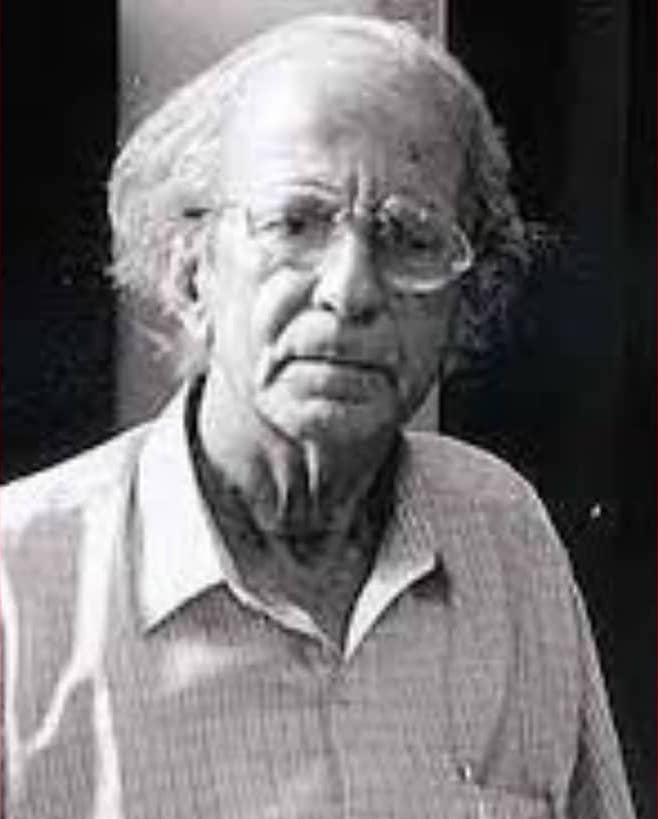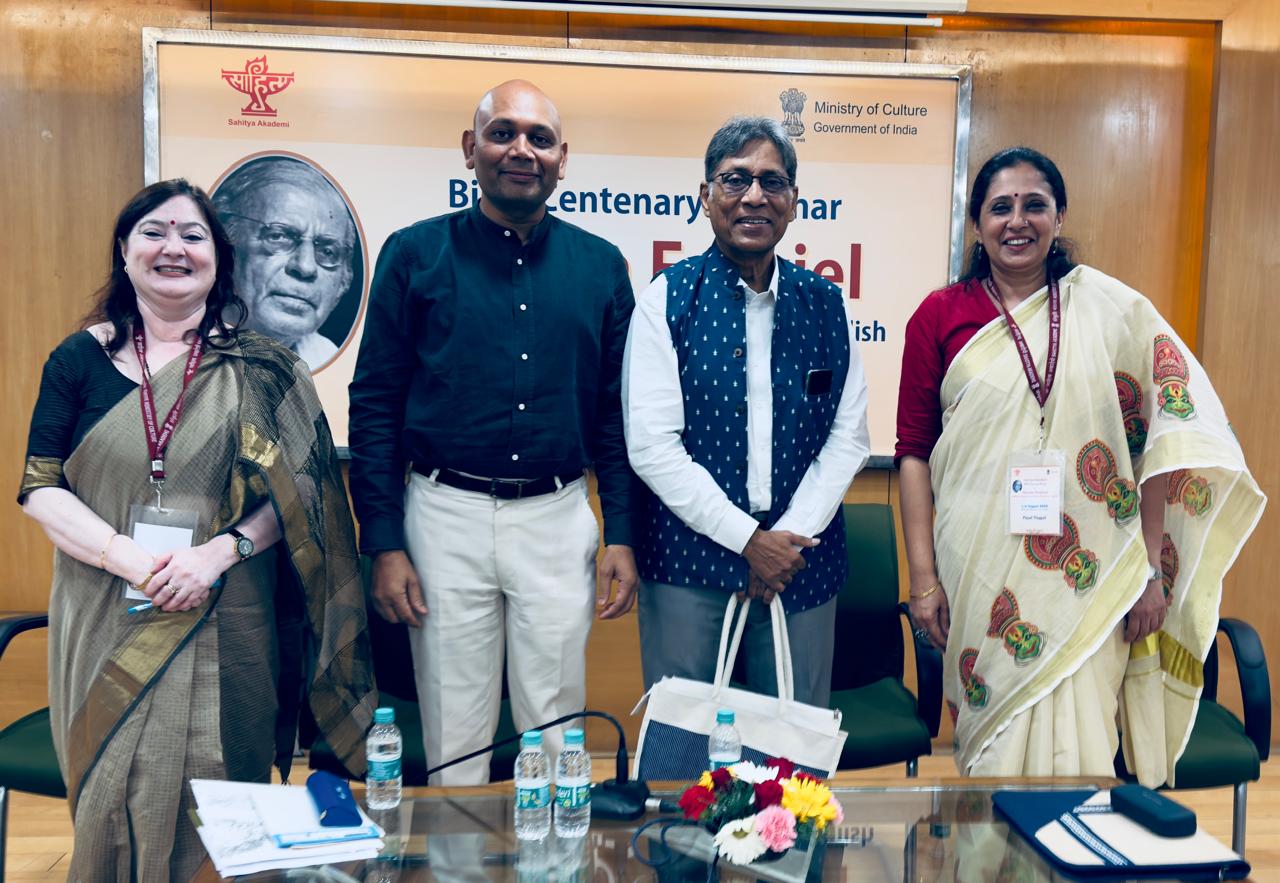
Nissim Ezekiel. Photo source: Facebook page of KalamKaar : The Literary Society of Deen Dayal Upadhyaya College, New Delhi
New Delhi: Nissim Ezekiel played an instrumental role in the development of Indian Poetry in English by introducing modernism to it and mentoring many Indian poets who later advanced the canon of Indian poetry in English. Yet, he was not fortunate enough with his familial life, and he died a lonely man as nobody looked after him in his last days. He passed away on January 9, 2004, in Mumbai at the age of seventy-nine.
Sahitya Akademi, India’s National Academy of Letters, organised a two-day Birth Centenary Seminar on Nissim Ezekiel and his impact on Indian Poetry in English on August 1-2, 2024, at Rabindra Bhawan, New Delhi.
Speaking about Ezekiel during the session ‘New Direction in Indian Poetry in English’, poet Abhay K., a recipient of the SAARC Literary Award, praised the pioneering role played by poet Nissim Ezekiel in modernising Indian poetry in English in the 1960s. “He was a kind and gentle soul who is very fondly remembered even today,” Abhay said.
The session was chaired by Anisur Rahman and co-panelists included Ranu Uniyal and Payal Nagpal. Malashri Lal, the convenor of the English Advisory Board of Sahitya Akademi, among other poets and scholars was among the audience.
Born in a Jewish (Bene-Israeli) family, on December 24, 1924, in Bombay (Mumbai), Ezekiel inherited the academic background from his parents. His father was a professor of Botany and Zoology while his mother was the principal of a school founded by her.
Ezekiel studied English at Wilson College, Mumbai and Philosophy at Birkbeck College, London. He left England in 1952 after publishing his first book of poems A Time To Change. He worked as a Professor of English at the University of Mumbai and also as a visiting professor at the University of Leeds in 1964. In 1978, he was invited to the Rotterdam International Poetry Festival.
He was a ‘Poet’s poet’ and nurtured the upcoming talented poets in Mumbai. He was a recipient of the Sahitya Akademi Award in 1983 and the government of India also honoured him with Padmashri in 1988.
Besides being a great poet, he was a playwright, lecturer, art critic, and broadcaster of literature and art too. “To begin with a supposition that a poet as a playwright provides certain interesting points of study seems quite relevant with respect to Nissim Ezekiel,” wrote Anisur Rahman in the book, Techniques and Motif in Nissim Ezekiel’s Three Plays: Indian Writing in English, edited by KN Sinha and published by Heritage, New Delhi in 1979. “His approach to theatre, quite unlike Eliot’s, is with the prose drama and it would appear thus, that there is nothing in the plays that could even remotely approximate to poetic forms,” Rahman added.
Chetan Karnani, in his book Nissim Ezekiel published by Arnold Heinemann publishers in 1974, wrote, “Like Yeats and Eliot, Ezekiel has chosen to seek an expression in a different medium because there has been real paucity of Indian drama in English…But the paucity is not only quantitative but also qualitative. Ezekiel deplores the fact that there is no healthy critical environment for the creation of plays…”
Nissim Ezekiel was a versatile personality. As a tribute to the great poet, playwright, lecturer, art critic, and broadcaster of literature and art that Ezekiel was, Abhay suggested three new directions for Indian Poetry in a transformed world—Digital Revolution, Climate Change and Space Exploration. He opined that Indian and world poets should write more about the relationship of human beings with millions of other species with whom we share our planet.
“I would like Indian poetry to highlight this relationship between us, human beings, and the planet, and our relationship with our fellow species on the planet. I think, it is this fundamental relationship, this fundamental interdependence, which should become focus of the Indian poetry,” Abhay said. He further added “Today we are more aware of what’s around us in space and astropoetry is as important as ecopoetry. Astropoetry makes us love and appreciate our planet, our only home, even more. When we look around us it’s almost desert, cosmic desert and the only oasis in this cosmic desert is our own planet…”
Abhay K., however, had some reservations about the digital revolution which today enables poets to publish their work globally at the click of a mouse. “Digital platforms provide opportunities for younger poets to publish and share their work from anywhere in the world. Many poets publish their work on Instagram and gain instant following and fame. However, it has also brought challenges such as poetry being written by AI,” he said. He stressed that poets can and should make better and judicious use of digital platforms to widen the reach of poetry and take it to a newer and wider audience.
– global bihari bureau






